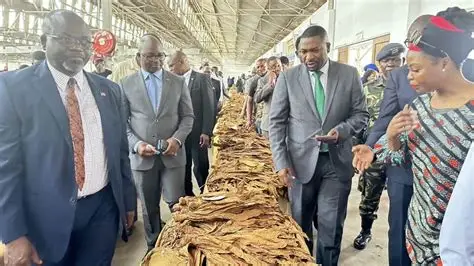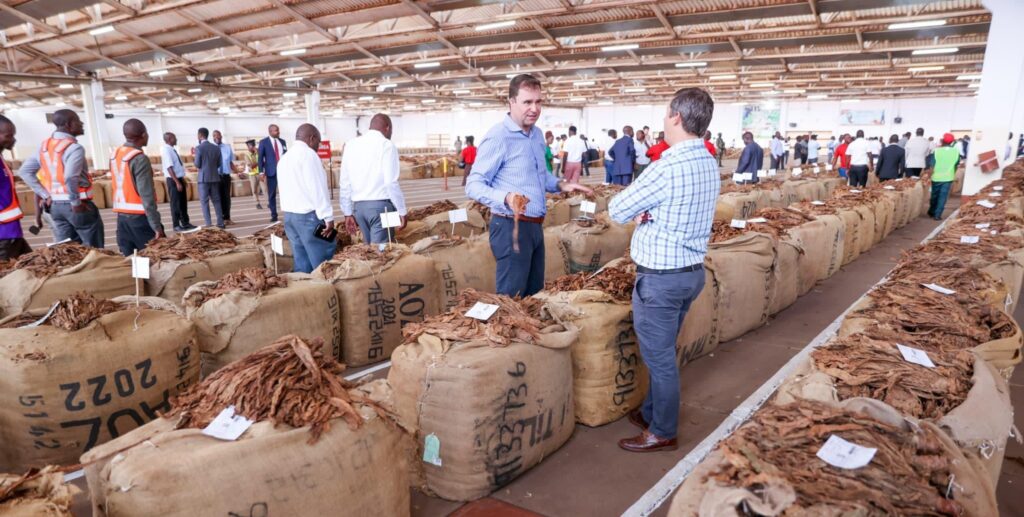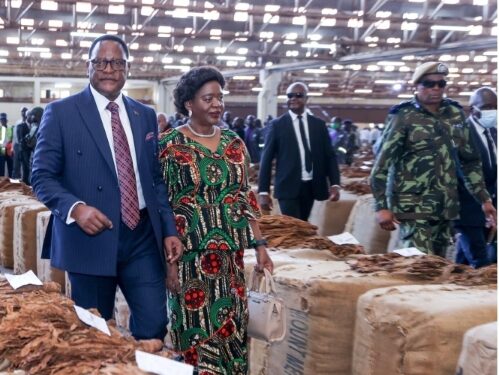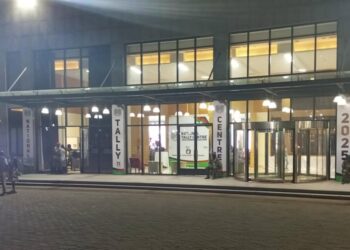Malawi’s tobacco industry has recorded its strongest performance in over two decades, with sales for the 2025 season surging past US$517 million (K905 billion), the highest haul since 2003.
The unprecedented earnings, confirmed by the Tobacco Commission on Monday, are being celebrated not only as an economic triumph but also as dividends from the decisive leadership of President Dr. Lazarus McCarthy Chakwera.
Figures released by the Tobacco Commission show that by 21st August, over 200 million kilograms of tobacco had been sold at an average price of US$2.53 per kilogram, compared to just 85 million kilograms in 2022 when erratic rains crippled production.
The bumper harvest and strong prices have been attributed to robust government support to farmers and what officials describe as transformative reforms in the tobacco industry.
“This is unprecedented in the history of the Commission,” said Board Chairperson Dr. Godfrey Chapola.
The regulator has since remitted a historic K1.5 billion dividend to government following a surplus in the 2024/2025 financial year.
“In 2022, we remitted nothing. This year, we are back on our feet because deliberate reforms are paying off,” added Dr. Chapola.
Minister of Finance and Economic Affairs, Honourable Simplex Chithyola Banda, praised the Commission’s financial stewardship, calling the record-breaking performance a “milestone in strengthening public finance management and domestic revenue mobilization.”

His sentiments have been echoed by Agriculture Minister Sam Kawale, who linked the tobacco windfall directly to government’s policy reforms and strategic interventions in agriculture.
“The success we celebrate today is the direct result of deliberate, intentional steps this government is taking to build a more efficient and prosperous Malawi for all,” Kawale said.
With elections just two weeks away, the tobacco success story is proof that Chakwera administration’s agricultural policies are delivering results where past administrations faltered.
Analysts note that tobacco, Malawi’s main foreign exchange earner, has long been a politically sensitive crop.

The 2025 season’s record-breaking earnings stand in stark contrast to the Democratic Progressive Party (DPP) era, when frequent disputes with buyers, poor regulation, and low yields often left farmers in despair.
“This is not just about tobacco; it’s about political capital. The government has shown that it is the defender of farmers and the driver of economic recovery. This is great for farmers especially when compared to the years of collapse under the DPP,” said one Lilongwe-based political analyst.
The timing is equally significant. The selling season was originally due to close in August, but the Commission extended trading twice, first to 29th August and later to 12th September, to allow all farmers to sell their leaf.
The extension ensured more farmers benefited.
In the early 2000s, Malawi consistently sold over 200 million kilograms of tobacco, but production plummeted in the following decades due to weak regulation and previous administration’s lack of commitment to transform the industry.
The 2025 rebound, therefore, is being portrayed as both a national economic comeback and a vindication of Dr. Chakwera’s policies.
Government insiders argue that the strong showing is part of a wider narrative of recovery under Chakwera’s leadership, alongside fertilizer subsidy reforms, forex stability measures, and a crackdown on illicit tobacco trade.
By contrast, opposition parties, particularly the DPP, have been muted in response. Instead, some opposition figures have sought to downplay government’s role, attributing the bumper crop solely to favorable weather.
As the Commission winds up the season on 12th September, projections suggest that total earnings could surpass US$520 million, cementing 2025 as a watershed year for Malawi’s green gold.
For President Dr. Chakwera, the numbers offer more than economic relief, they provide a powerful message of revival, resilience, and reform. In a country where tobacco remains the lifeblood of rural households, that message is critical to Malawians as they go into the ballot box.








